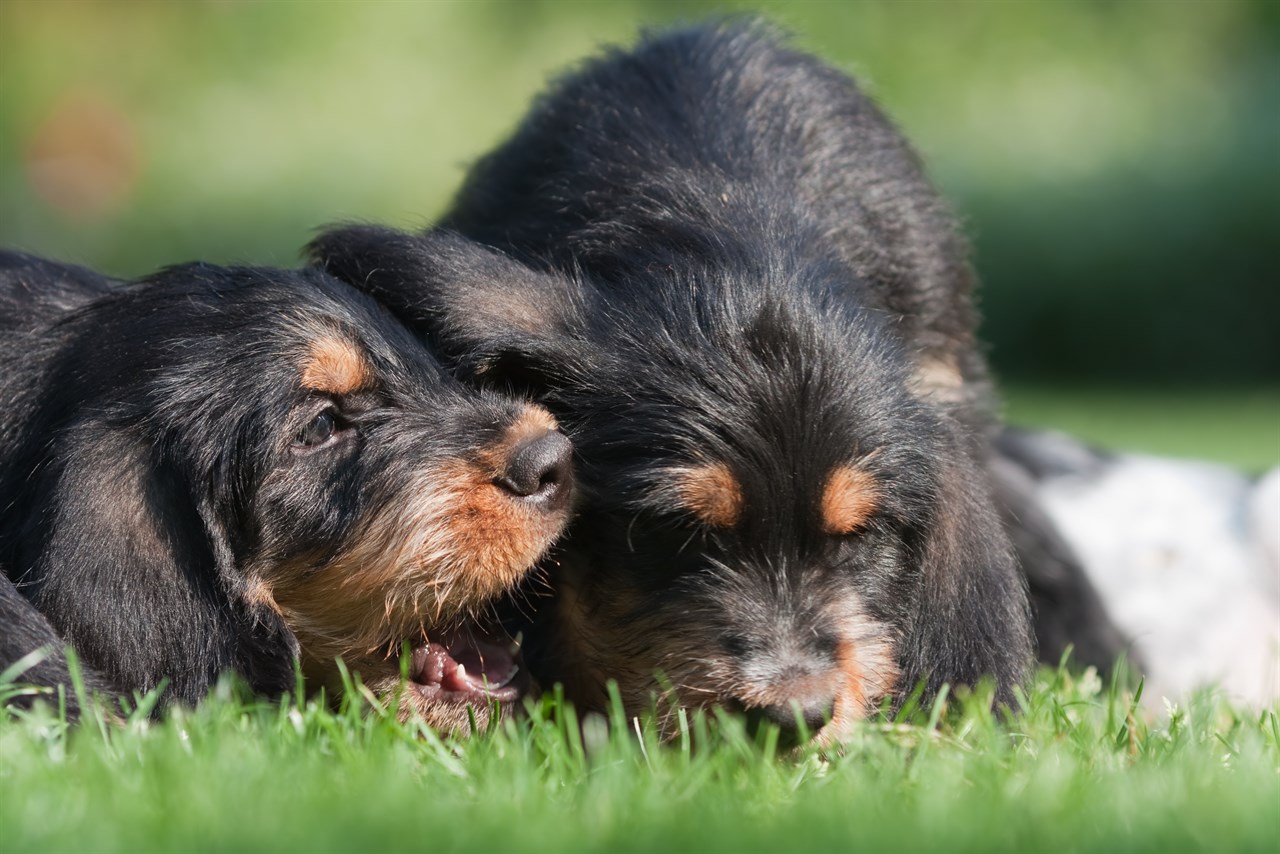Grooming and Maintenance Requirements of the Otterhound

The Otterhound's shaggy and weather-resistant coat requires regular grooming and maintenance to keep it healthy and to ensure the overall well-being of the dog. Here's a comprehensive guide to the grooming needs of the Otterhound.
Brushing
Frequent brushing is crucial for an Otterhound due to its double coat. Brushing helps remove loose hair, prevents matting, and distributes natural oils to keep the coat shiny. Use a slicker brush or a pin brush to penetrate the dense coat and remove tangles. Aim to brush your Otterhound at least a few times a week, with more frequent brushing during shedding seasons.
Bathing
While Otterhounds have a waterproof outer coat, they do benefit from occasional baths. Bathing helps keep the coat clean and fresh, reducing odour. However, avoid over-bathing, as it can strip the coat of natural oils, leading to dryness and skin issues. Use a mild, dog-specific shampoo and ensure thorough rinsing.
Ear Care
Otterhounds have long, pendulous ears that can trap moisture, debris, and earwax, making them prone to ear infections. Regularly check and clean their ears to prevent infections. Use a veterinarian-recommended ear cleaner and follow the instructions carefully.
Nail Trimming
Regular nail trimming is essential to keep your Otterhound comfortable and to prevent overgrown nails, which can lead to discomfort and joint issues. If you're not confident in trimming your dog's nails, consider having a professional groomer or veterinarian do it for you.
Dental Care
Dental hygiene is important for all breeds, including Otterhounds. Brush their teeth regularly with a dog-specific toothbrush and toothpaste to prevent dental issues. Dental chews and toys can also help promote good oral health.
Coat Trimming
Trimming the hair around their ears, paws, and tail can help prevent matting and maintain a tidy appearance. Some owners opt for professional grooming services to achieve a more polished look.
Exercise and Mental Stimulation
Regular exercise and mental stimulation are vital for your Otterhound's overall well-being. Exercise keeps them physically fit and can help reduce excess energy that might lead to destructive behaviour. Mental stimulation, such as puzzle toys and interactive games, can help satisfy their intelligent and curious nature.
Regular Check-ups
Schedule regular veterinary check-ups to monitor your Otterhound's overall health. The veterinarian can address any specific grooming or health concerns and provide guidance on maintaining their well-being.
Seasonal Shedding
Be prepared for seasonal shedding, which is typical for Otterhounds during spring and fall as they transition between their winter and summer coats. During these times, more frequent brushing can help manage the shedding.
Conclusion
The grooming and maintenance requirements of the Otterhound, while not excessively demanding, should not be underestimated. Regular grooming sessions, including brushing, ear cleaning, and nail trimming, are essential to keep their coat and overall health in good condition. By dedicating time to their grooming needs and providing proper care, you can ensure that your Otterhound remains a healthy, happy, and well-groomed companion.
Otterhound puppies for sale
- Find Otterhound puppies for sale in ACT
- Find Otterhound puppies for sale in NSW
- Find Otterhound puppies for sale in NT
- Find Otterhound puppies for sale in QLD
- Find Otterhound puppies for sale in SA
- Find Otterhound puppies for sale in TAS
- Find Otterhound puppies for sale in VIC
- Find Otterhound puppies for sale in WA